01 - Syntactic and Rhetorical Analysis of Joe Bidenâs Inaugural Speech at Washin...
http://dx.doi.org/10.31703/gpr.2024(IX-III).0110.31703/gpr.2024(IX-III).01 Published : Sep 2024
-
Inaugural speech is the first chance for a president to engage the public in new strategies for success. Every inaugural speech is an example of the aims and objectives of the future. As president of America, Joe Biden has faced many challenges, including foreign affairs, a poor economy due to COVID-19, and, most importantly, American unity. The focus of the present investigation is to lead a styl... Details
-
Syntactic and Rhetorical Devices, Analysis, Inaugural Speech, Political Discourse, Joe Biden
-
(1) Aisha Farid
Assistant Professor, Department of English, Government College Women University, Sialkot, Punjab, Pakistan.
(2) Muhammad Sabboor Hussain
Professor, Department of English, University of Sialkot, Punjab, Pakistan.
(3) Nighat Farid
Associate Professor, Government College for Women, Rawalpindi, Punjab, Pakistan.
02 - Indo-American Relations during Donald Trump Era: Implications for Pakistan ...
http://dx.doi.org/10.31703/gpr.2024(IX-III).0210.31703/gpr.2024(IX-III).02 Published : Sep 2024
-
The Indo-American relations during the Donald Trump era undertook a noteworthy transformation, from January 20, 2017, to January 20, 2021. Major components of the relationship between Indian Prime Minister Narendra Modi and American President Donald Trump and the implications of their relationship for Pakistan are stated in this research. Throughout Trump's Presidency, there was a fusion of worrie... Details
-
Presidency, Indo-US Nexus, Pakistan, 2+2 Dialogue, Howdy Modi
-
(1) Maryam Shahbaz
M.Phil. Scholar, Department of International Relations, Government College University, Faisalabad, Punjab, Pakistan.
(2) Ghulam Mustafa
Associate Professor, Department of International Relations, Government College University, Faisalabad, Punjab, Pakistan.
(3) Bilal Bin Liaqat
Assistant Professor (OPS), Department of International Relations, Government College University, Faisalabad, Punjab, Pakistan.
03 - A New Sanctified British Era of Architecture and Supremacy at Rawalpindi, Punjab...
http://dx.doi.org/10.31703/gpr.2024(IX-III).0310.31703/gpr.2024(IX-III).03 Published : Sep 2024
-
This article defines the ‘Church Architecture’ with its genera which was introduced by the British government to the Subcontinent. This architecture is a significant part of the cultural heritage and British Archaeology of Pakistan. ‘Church Architecture’ is still a center of attention for the general public and the Christian community in Rawalpindi, Punjab, Pakistan. These ... Details
-
Sanctified, British Era, Supremacy, Churches, Christians, Church Architecture, Genera, British East India Company, Regime Change Operation, Religious Agenda.
-
(1) Kaniez Fatima
Associate Professor, Department of Archaeology, Hazara University. MÄnsehra, Khyber Pakhtunkhwa, Pakistan.
(2) Mukhtar Ali Durrani
Associate Professor, Department of Archaeology, Hazara University. MÄnsehra, Khyber Pakhtunkhwa, Pakistan.
(3) Shakirullah
Associate Professor, Department of Archaeology, Hazara University. MÄnsehra, Khyber Pakhtunkhwa, Pakistan.
04 - Exploring the Role of Social Media in Bridging Knowledge Gaps and Shaping Politi...
http://dx.doi.org/10.31703/gpr.2024(IX-III).0410.31703/gpr.2024(IX-III).04 Published : Sep 2024
-
The study investigates social media's role in bridging knowledge gaps, influencing its intervention in political activism, and shaping of 21st-century activism. The study used a quantitative research methodology to collect data from university students using self-developed questionnaires distributed online. The data was analyzed using SPSS version 25 and presented in descriptive statistics. The st... Details
-
Social Media, Role, Knowledge Gap, Intervention Factors, Political Awareness
-
(1) Khayam Hassan
PhD Scholar, Department of Media and Communication Studies, National University of Modern Languages, Islamabad, Pakistan.
(2) Khalid Sultan
Professor, Department of Media and Communication Studies, National University of Modern Languages, Islamabad, Pakistan.
(3) Waqas Bin Ayaz
PhD Scholar, Department of Media and Communication Studies, National University of Modern Languages, Islamabad, Pakistan.
05 - Judicial Activism in Pakistan and its Impacts on Tripartite Governance: Lessons ...
http://dx.doi.org/10.31703/gpr.2024(IX-III).0510.31703/gpr.2024(IX-III).05 Published : Sep 2024
-
The judiciary played a significant role in the evolution of democracy in Pakistan. Throughout history, the military remained at the core of politics and as an avoidable stakeholder influenced the judiciary in validating its extraconstitutional actions. However, after 2009, the judiciary emerged as exceptionally independent invalidating extraconstitutional actions and stretching its authority to ta... Details
-
Democracy, Judicial Activism, Parliament, Reko Diq, ICSID, Suo Motu, Separation of Powers, US Constitution
-
(1) Bakht Munir
Postdoc Research Fellow, The University of Kansas School of Law (KU) Lawrence, Kansas 66045, USA.
(2) Akhtar Ali Ansari
LL.M Scholar, University of Lahore (UOL), Punjab, Pakistan.
(3) Tahir Mahmood
LLM Scholar, University of Lahore (UOL), Punjab, Pakistan.
06 - Pakistan-Bangladesh Unresolved Issues During the Era of Prime Minister Sheikh Ha...
http://dx.doi.org/10.31703/gpr.2024(IX-III).0610.31703/gpr.2024(IX-III).06 Published : Sep 2024
-
This research offers a thorough study of Pak-Bangladesh relations under the direction of Prime Minister Sheikh Hasina Wajid from her return to power in 2009 to the present. Understood within the larger framework of South Asian geopolitics, the study aims to clarify the evolution, dynamics, and subtleties of the bilateral relationship between Pakistan and Bangladesh. It looks at how interactions be... Details
-
Pak-Bangladesh Relations, Hasina Wajid, Stranded Pakistani, Bihari Issue, Apology issue
-
(1) Bashir Hussain Shah
M.Phil. Scholar, Department of International Relations, Government College University Faisalabad, Punjab, Pakistan.
(2) Ghulam Mustafa
Associate Professor, Department of International Relations, Government College University Faisalabad, Punjab, Pakistan.
(3) Sapna Sardar
Visiting Lecturer, Department of International Relations, Government College University Faisalabad, Punjab, Pakistan.
07 - What Went Wrong? A Critique on Pakistanâs War on Terror ...
http://dx.doi.org/10.31703/gpr.2024(IX-III).0710.31703/gpr.2024(IX-III).07 Published : Sep 2024
-
This paper explores the collective loss experienced by a family and a community of ‘Mir Ali’ in Fatima Bhutto’s The Shadow of the Crescent Moon (2013). By using Butler, 2003 and Moglen, 2005 theories of loss (personal and social), personal and collective mourning, and melancholia, the study reveals how people of Pakistan’s backward tribal area, Mir Ali, have suffered the tr... Details
-
Collective Loss, Personal Loss, Mourning, Trauma
-
(1) Sadia Nazeer
Assistant Professor, Department of English, Shaheed Benazir Bhutto Women University, KP, Pakistan.
(2) Anbarin Fatima
Assistant Professor, Department of English, Shaheed Benazir Bhutto Women University, KP, Pakistan.
(3) Nayab Saqib Ghani
English Educationist, Roots Millennium School, Khyber Campus, KP, Pakistan.
08 - Evolving Balance of Power in the Middle East: Iran-Israel Standoff Shaping Irani...
http://dx.doi.org/10.31703/gpr.2024(IX-III).0810.31703/gpr.2024(IX-III).08 Published : Sep 2024
-
The Israel-Iranian conflict can be considered a major contributor to changes in the power balance in the Middle East. This competition has profound implications for regional stability and has impacted almost every realm of Iran's foreign policy. It influences its decision-making regarding its domestic policies, strategy on military actions, neighboring countries, and its nuclear plan. If both coun... Details
-
Iran-Israel Strategic Rivalry, Iranian Foreign Policy, Key Players in Middle East, Iranian Proxies/Partners
-
(1) Rida Tanvir
Lecturer, Department of International Relations, National University of Modern Languages (NUML), Islamabad, Pakistan.
(2) Syed Qandil Abbas
Assistant, Professor School of Politics and International Relations (SPIR), Quaid I Azam University, Islamabad, Pakistan.
09 - Estimation of Informal Economy in Pakistan through Monetary Approach ...
http://dx.doi.org/10.31703/gpr.2024(IX-III).0910.31703/gpr.2024(IX-III).09 Published : Sep 2024
-
This study purposes to estimate Pakistan's informal economy by monetary methods. Ordinary least square is used for estimation. From the monetary approach, we conclude that the informal economy is increasing. In our study, particular implications of the informal economy are identified and conferred to accomplish and achieve the goal of continuous growth and progression of a country. The informal ec... Details
-
Informal Economy, Indirect and Direct Approaches, Monetary Approach and Underground Economy
-
(1) Rohina Khan
Phil Scholar, Department of Economics, University of Peshawar, KP, Pakistan.
(2) Nadeem Iqbal
Assistant Professor, Department of Economics, University of Peshawar, KP, Pakistan.
(3) Aisha Rehman
PhD Scholar, Department of Economics, University of Peshawar, KP, Pakistan.
10 - The Politics of Identity Markers: A Critical Discourse Analysis of Pakistani Eng...
http://dx.doi.org/10.31703/gpr.2024(IX-III).1010.31703/gpr.2024(IX-III).10 Published : Sep 2024
-
This study looked at how politicians come about with their political identities using identity markers to communicate their ideology(s) and ideas in political discourse. This study attempted to examine such identifying markers employed by Imran Khan (PTI), Fazal-ur-Rehman (JUI-F), Nawaz Sharif (PML-N), and Bilawal Bhutto (PPP) in Dawn and The Express Tribune news between 2018 and 2023. Data was ob... Details
-
Identity Markers, Political Leaders, Textual, Discursive, Explanation
-
(1) Arshad Khan
M.Phil Scholar, Department of English, National University of Modern Languages (NUML), Rawalpindi Campus, Punjab, Pakistan.
(2) Muhammad Farooq Alam
Assistant Professor, Department of English, National University of Modern Languages, (NUML) Rawalpindi Campus, Punjab, Pakistan.
(3) Muhammad Umar Razzaq
M.Phil Scholar, Department of English, National University of Modern Languages (NUML), Rawalpindi Campus, Punjab, Pakistan.

 Volume XI, Issue I (Winter 2026)
Volume XI, Issue I (Winter 2026)  Volume X, Issue IV (Fall 2025)
Volume X, Issue IV (Fall 2025) 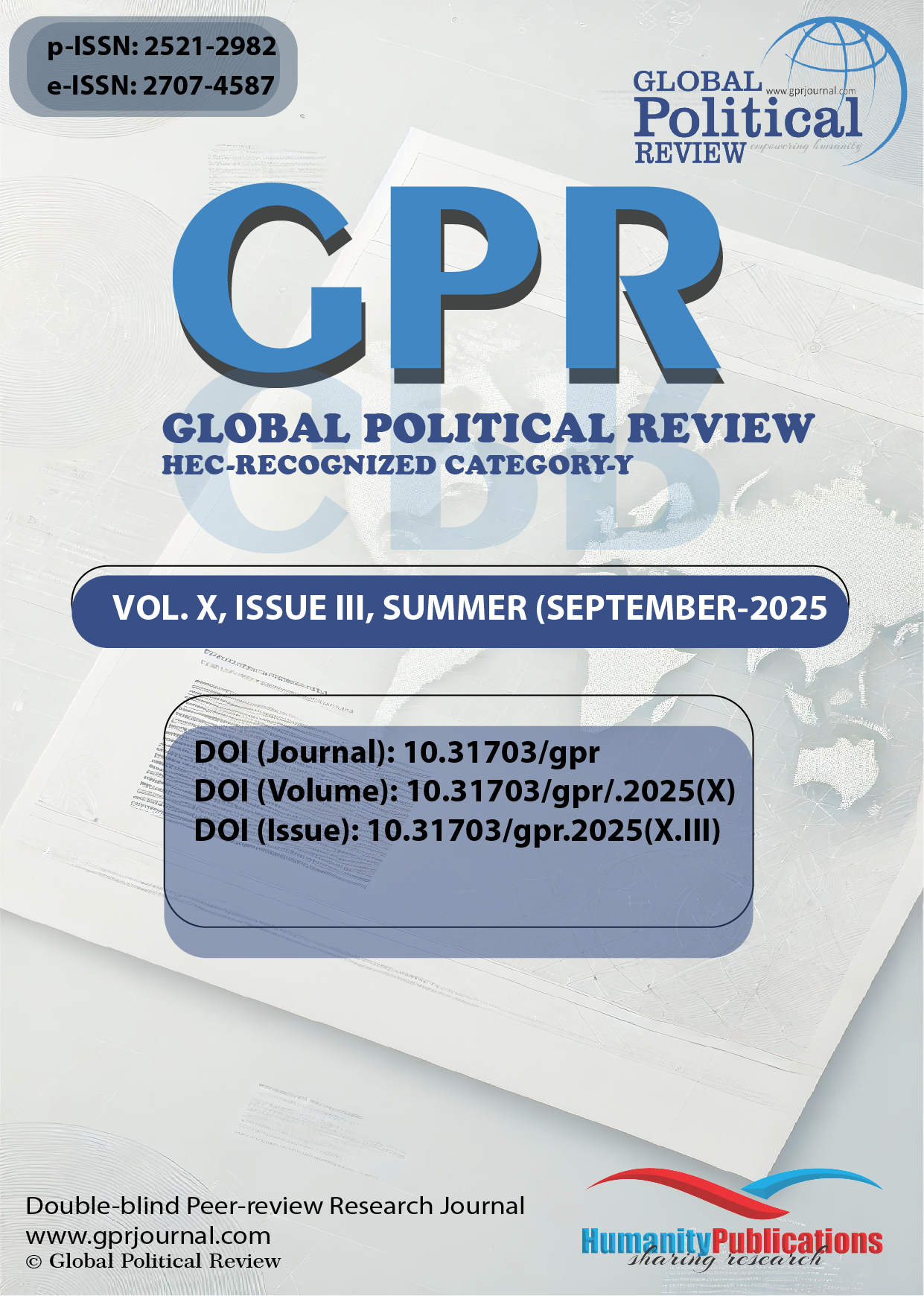 Volume X, Issue III (Summer 2025)
Volume X, Issue III (Summer 2025) 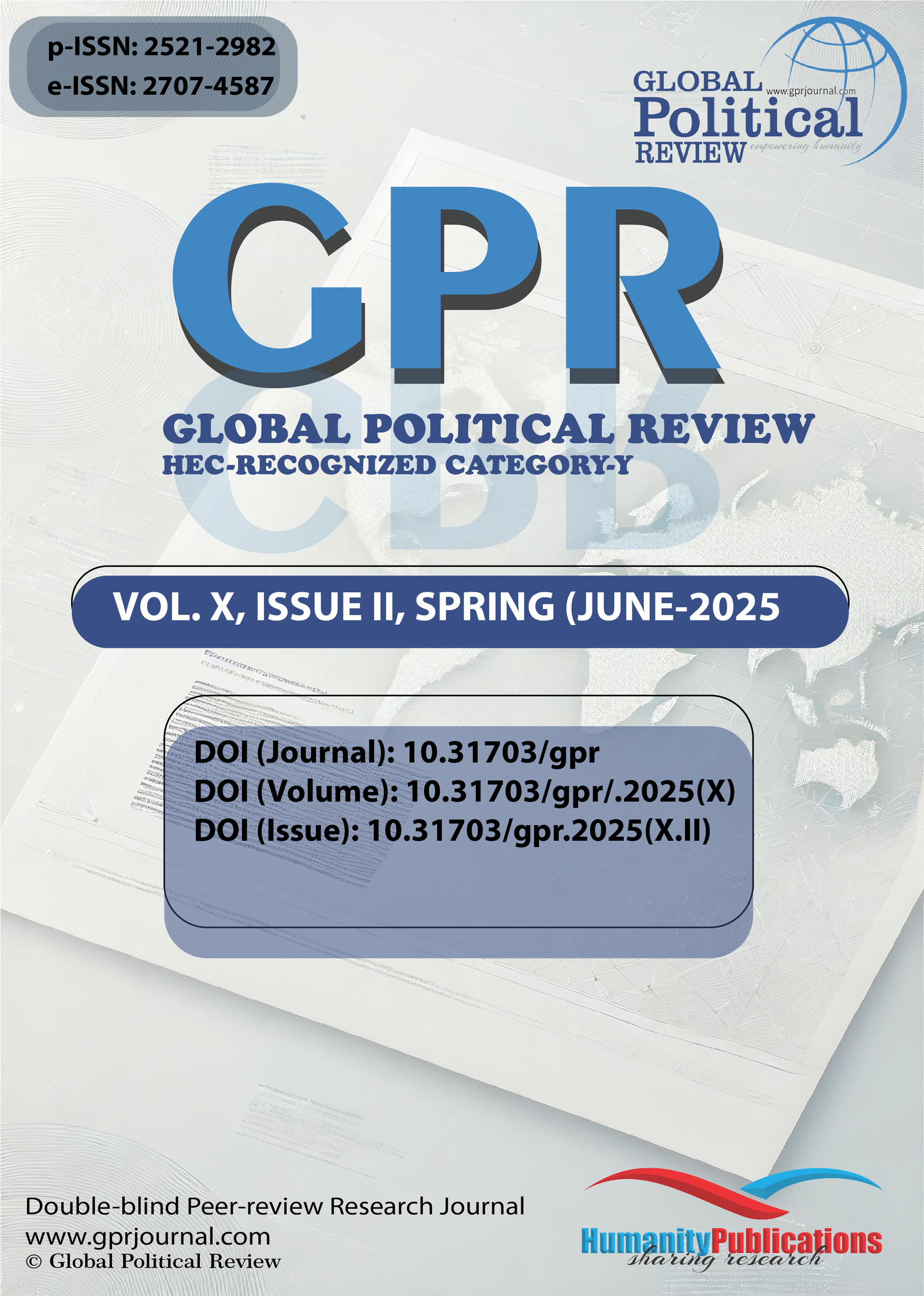 Volume X, Issue II (Spring 2025)
Volume X, Issue II (Spring 2025)  Volume X, Issue I (Winter 2025)
Volume X, Issue I (Winter 2025)  Volume IX, Issue IV (Fall 2024)
Volume IX, Issue IV (Fall 2024)  Volume IX, Issue III (Summer 2024)
Volume IX, Issue III (Summer 2024)  Volume IX, Issue II (Spring 2024)
Volume IX, Issue II (Spring 2024)  Volume IX, Issue I (Winter 2024)
Volume IX, Issue I (Winter 2024) 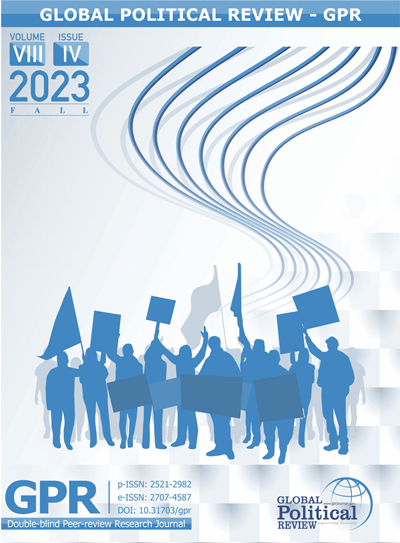 Volume VIII, Issue IV (Fall 2023)
Volume VIII, Issue IV (Fall 2023)  Volume VIII, Issue III (Summer 2023)
Volume VIII, Issue III (Summer 2023)  Volume VIII, Issue II (Spring 2023)
Volume VIII, Issue II (Spring 2023) 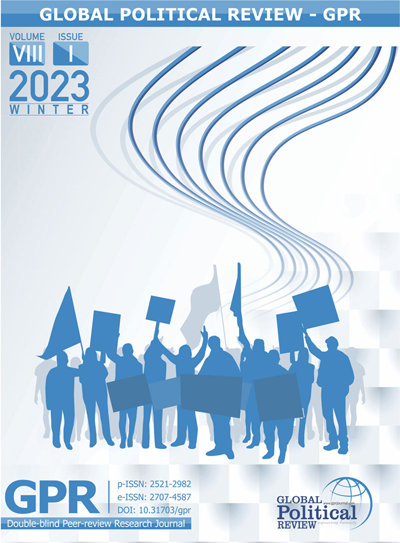 Volume VIII, Issue I (Winter 2023)
Volume VIII, Issue I (Winter 2023) 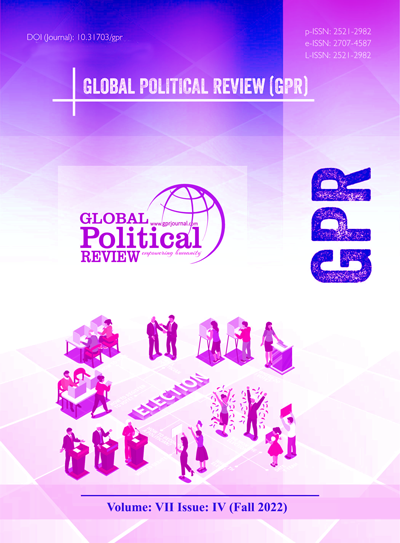 Volume VII, Issue IV (Fall 2022)
Volume VII, Issue IV (Fall 2022)  Volume VII, Issue III (Summer 2022)
Volume VII, Issue III (Summer 2022)  Volume VII, Issue II (Spring 2022)
Volume VII, Issue II (Spring 2022)  Volume VII, Issue I (Winter 2022)
Volume VII, Issue I (Winter 2022) 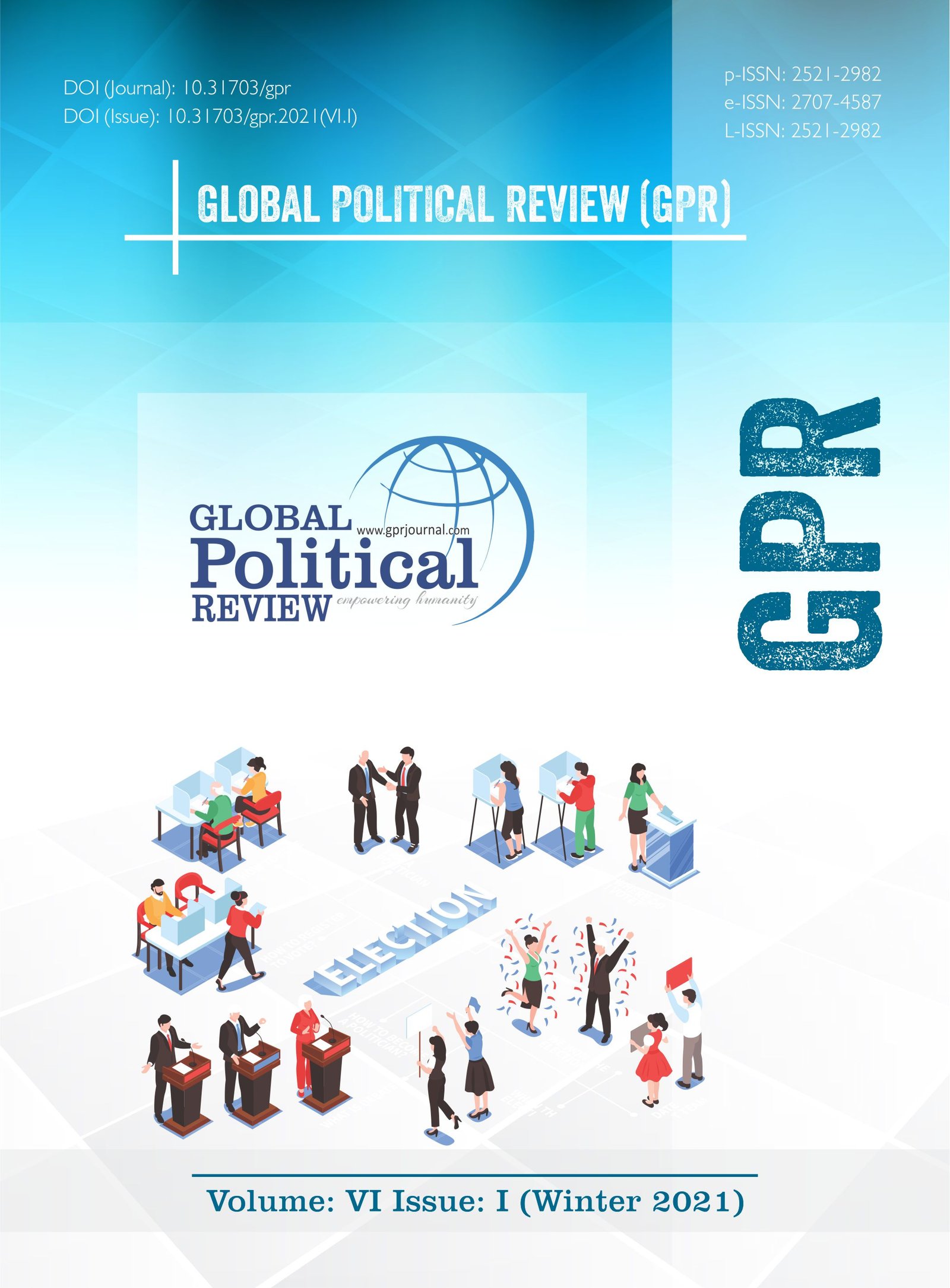 Volume VI, Issue IV (Fall 2021)
Volume VI, Issue IV (Fall 2021) 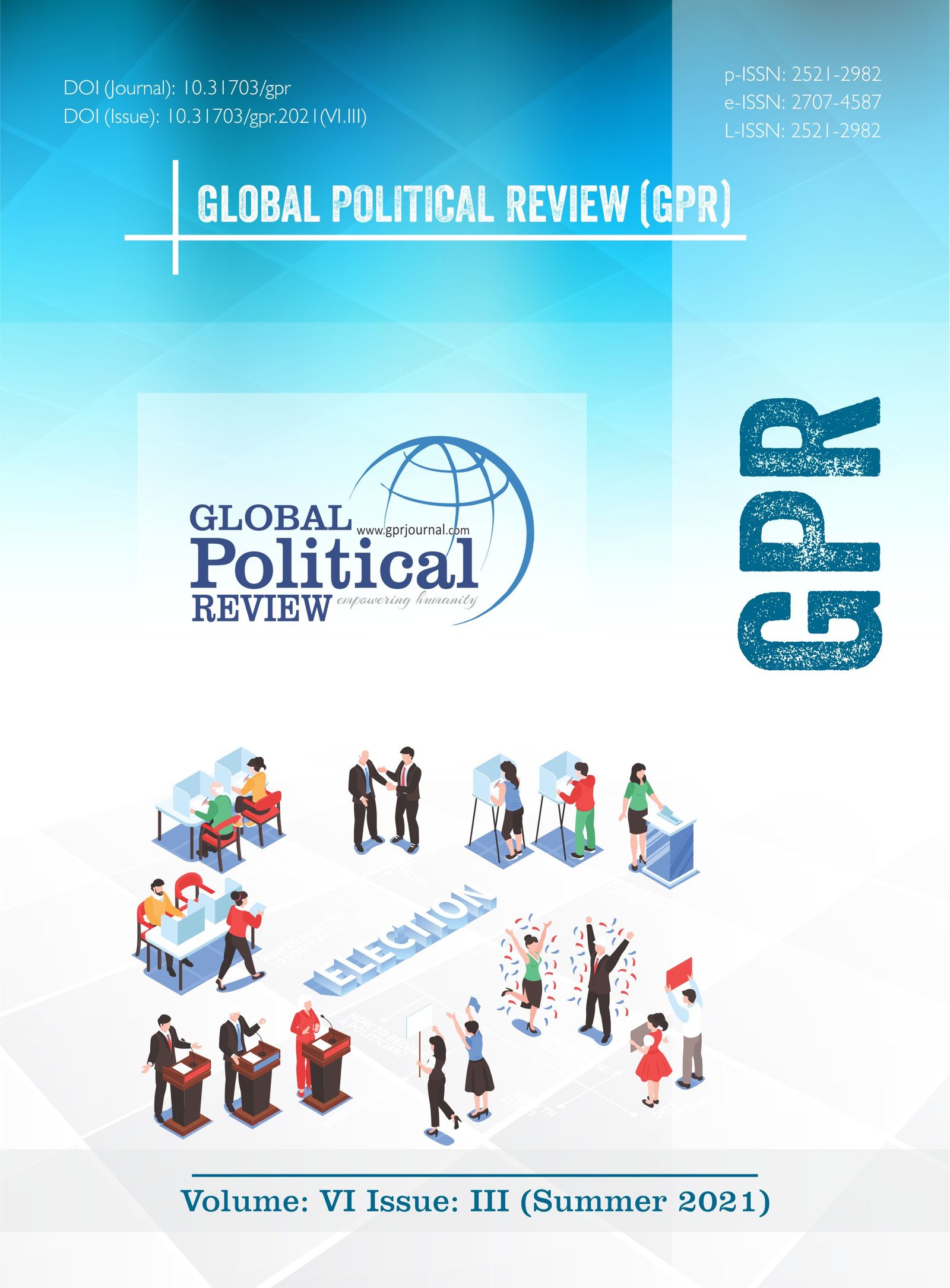 Volume VI, Issue III (Summer 2021)
Volume VI, Issue III (Summer 2021)  Volume VI, Issue II (Spring 2021)
Volume VI, Issue II (Spring 2021) 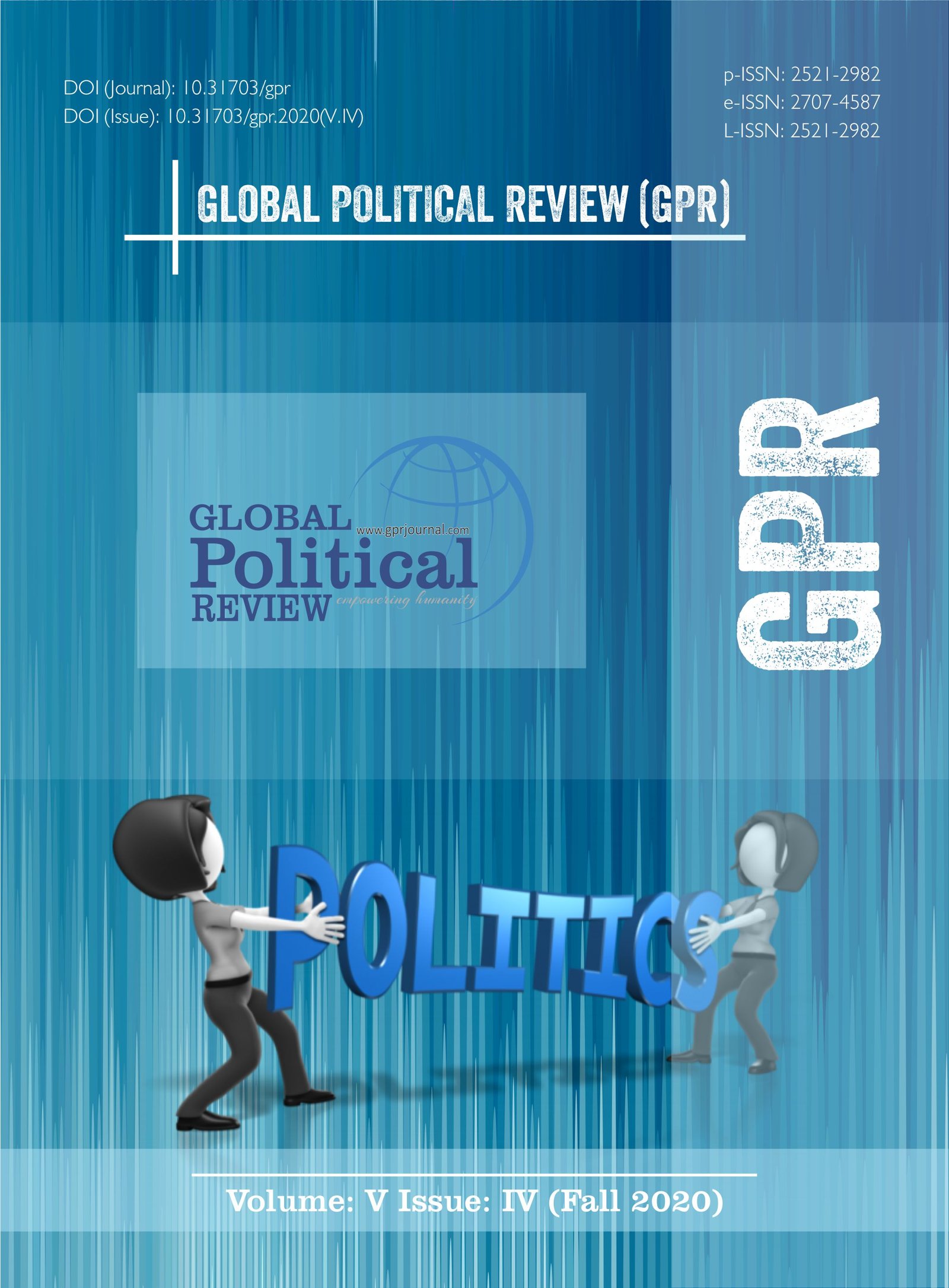 Volume V, Issue IV (Fall 2020)
Volume V, Issue IV (Fall 2020)  Volume V, Issue III (Summer 2020)
Volume V, Issue III (Summer 2020) 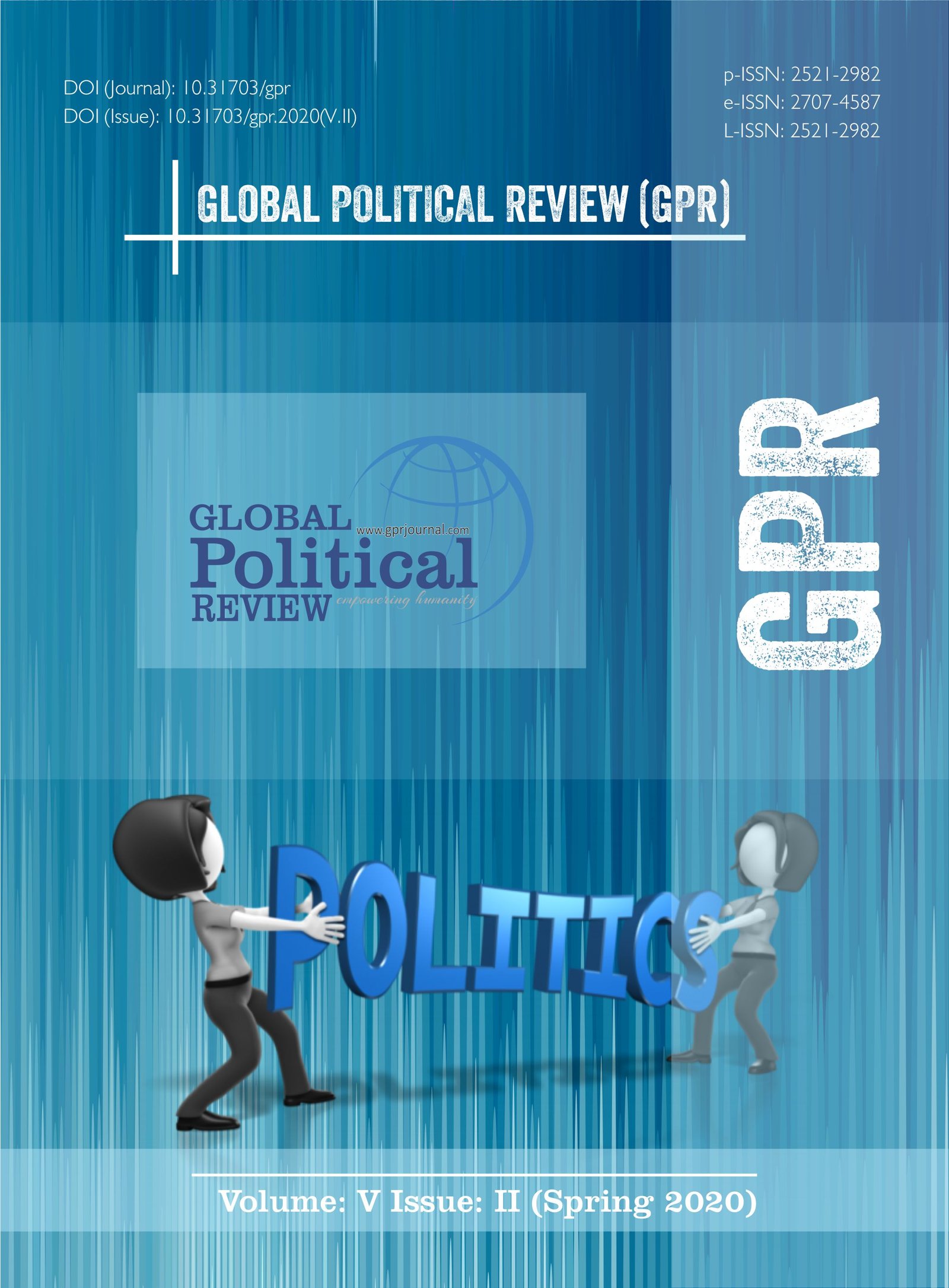 Volume V, Issue II (Spring 2020)
Volume V, Issue II (Spring 2020) 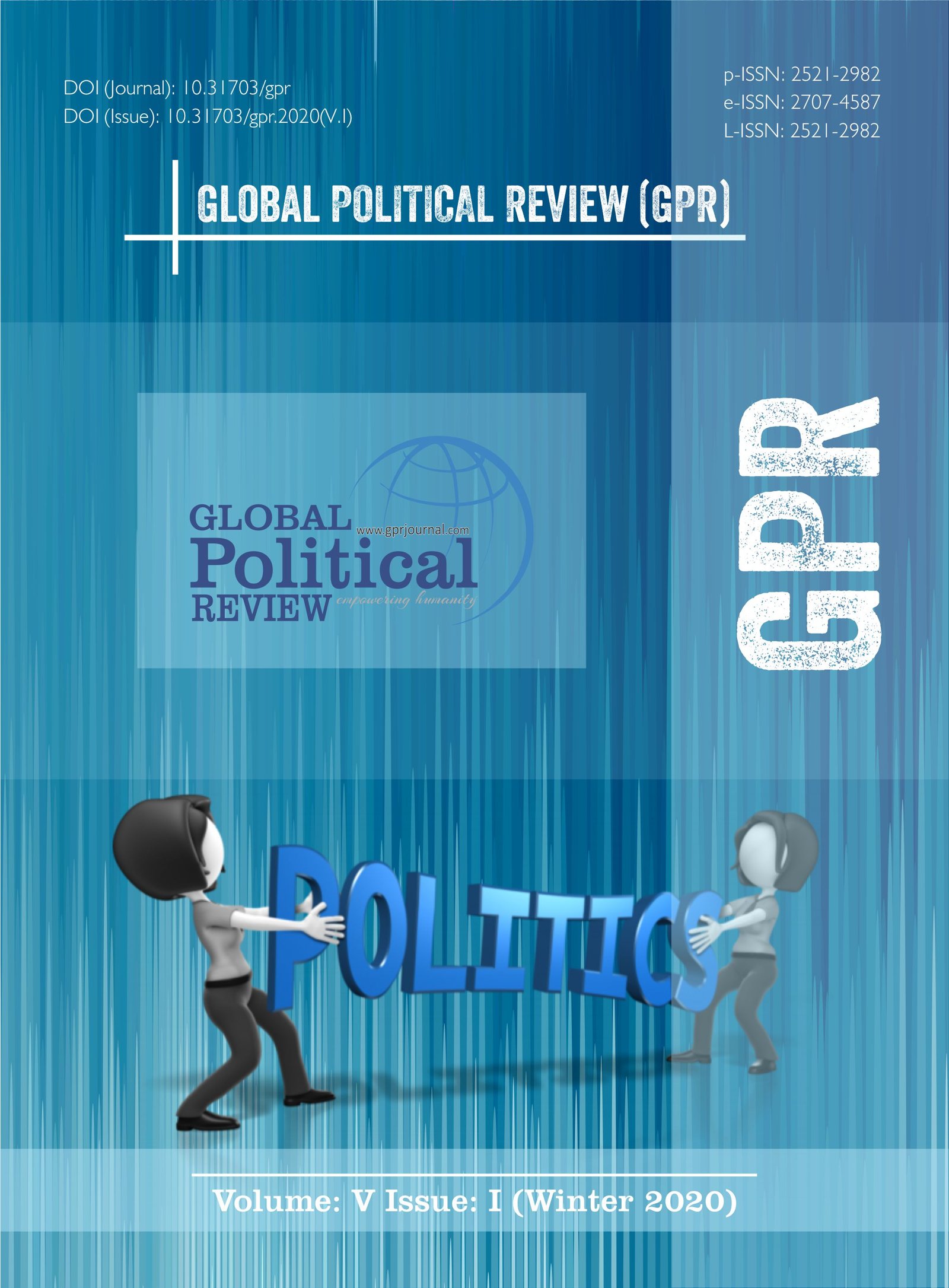 Volume V, Issue I (Winter 2020)
Volume V, Issue I (Winter 2020)  Volume IV, Issue IV (Fall 2019)
Volume IV, Issue IV (Fall 2019)  Volume IV, Issue III (Summer 2019)
Volume IV, Issue III (Summer 2019)  Volume IV, Issue II (Spring 2019)
Volume IV, Issue II (Spring 2019) 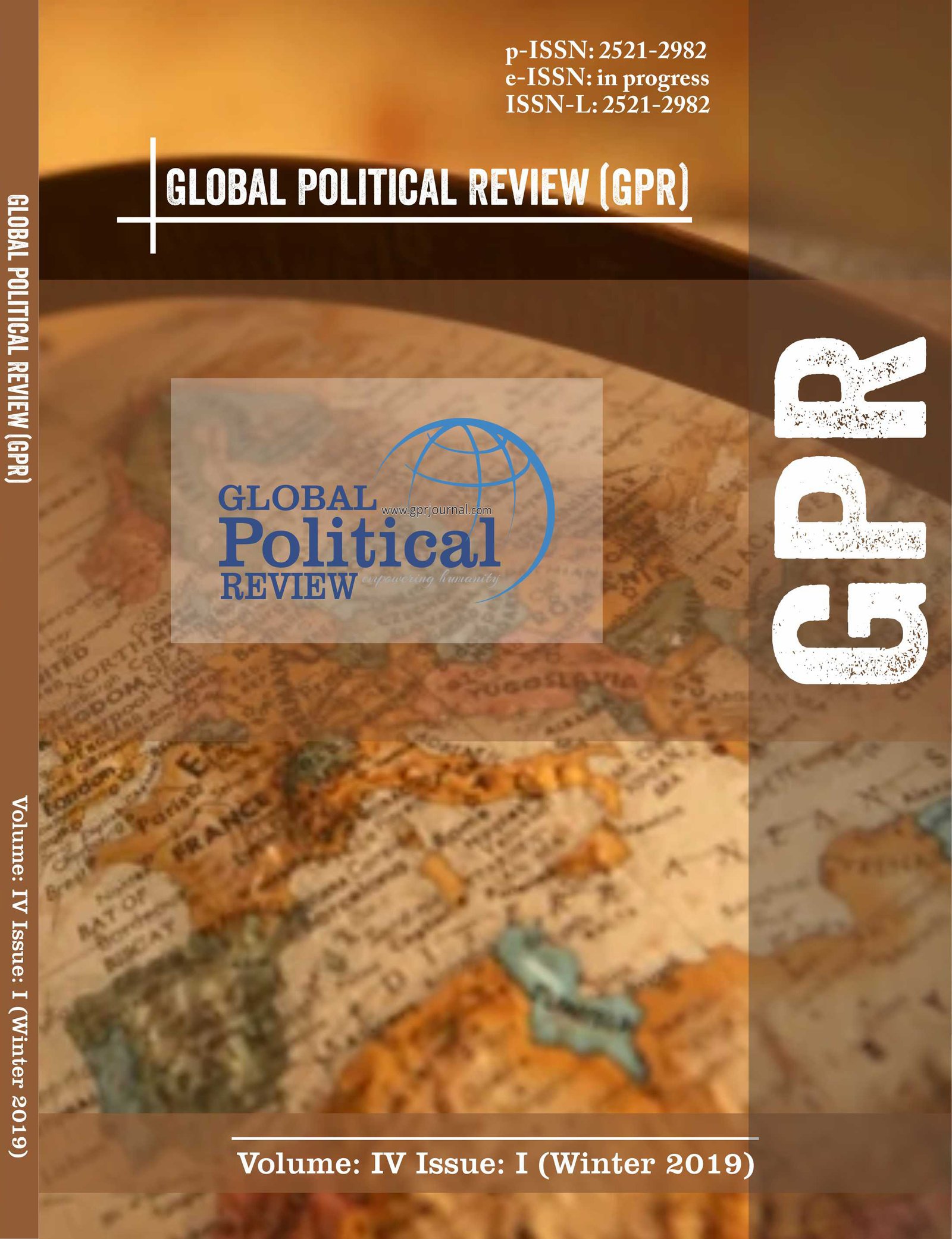 Volume IV, Issue I (Winter 2019)
Volume IV, Issue I (Winter 2019) 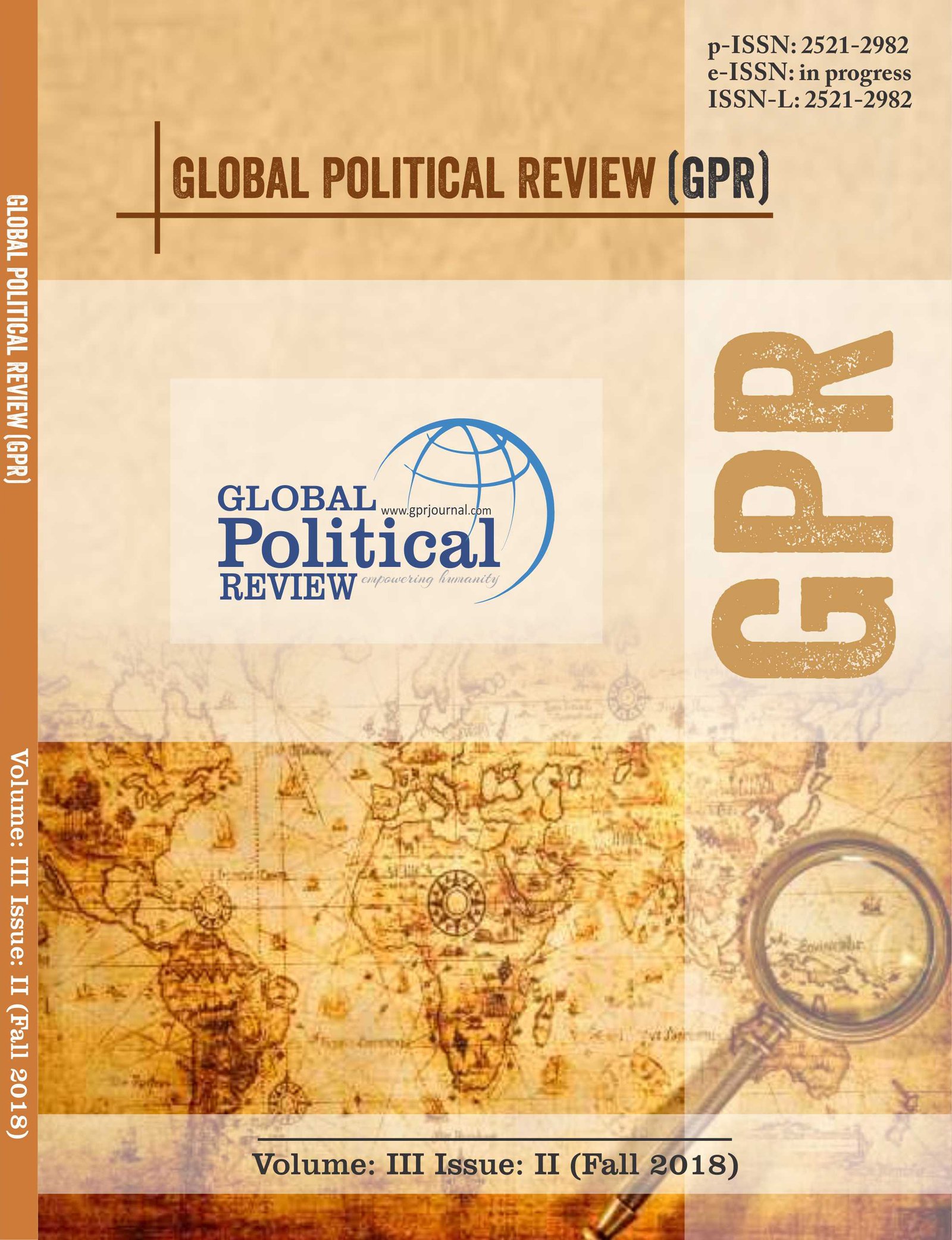 Volume III, Issue II (Fall 2018)
Volume III, Issue II (Fall 2018) 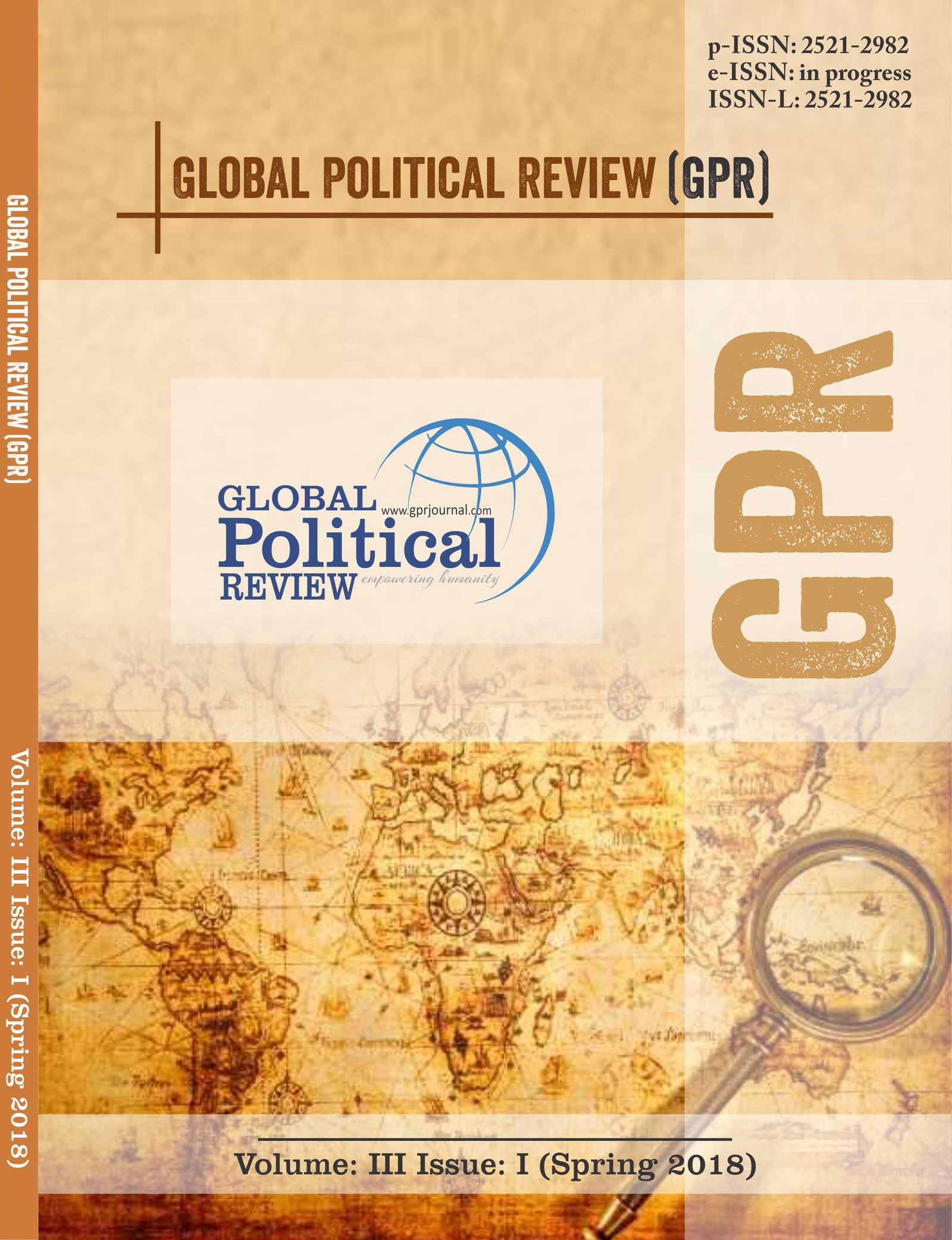 Volume III, Issue I (Spring 2018)
Volume III, Issue I (Spring 2018)  Volume II, Issue I (Fall 2017)
Volume II, Issue I (Fall 2017)  Volume I, Issue I (Fall 2016)
Volume I, Issue I (Fall 2016)